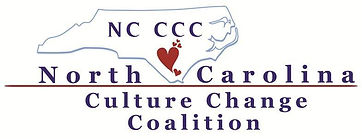Part 1: Public Health Emergency Funding
On May 11, 2023, the federal Public Health Emergency ended, bringing an end to most of the health care benefits and other benefits that were initiated with the PHE declaration in March 2020. Many State and Federally funded programs received additional funding to use in response to COVID19 to allow those programs to help support the health and well-being of the individuals that benefited from them.
In March 2020, CMS issued QSO-20-14-NH, which restricted visitation in all long-term care nursing homes to only essential personnel. While this measure was taken to protect long-term care residents from COVID19, the physical and emotional impact for those restricted from visitation with family and friends was apparent within a short time. In September 2020, CMS issued QSO-20-39-NH, which lifted some of the restrictions on visitation in long-term care communities and provided guidance on safe visitation practices, including the use of visitation aids that would allow continued visitation between residents and their families while lowering the risk of COVID19 transmission.
In response to QSO-20-39-NH, CMS provided funding and guidance for virtual and in-person visitation aids through the Civil Money Penalty Reinvestment Program. Nursing Homes could apply for funding to purchase air quality equipment, portable fans, outdoor tents and plexiglass dividers, iPads and tablets, and additional items to aid in safe visitation for residents. Each facility was allowed up to $3,000 per category (Air Quality, Communicative Technology, and Visitation Aid) to assist in providing safe visitation for residents. This funding ended with the national PHE on May 11, 2023.
In North Carolina -
75 nursing homes purchased air quality equipment totaling $199,144.
305 nursing homes purchased communicative technology totaling $740,516.
136 nursing homes purchased visitation aid equipment totaling $317,170.

In April 2023, CMS paused the CMPRP to review the program and "revise the structure of the Civil Money Penalty Reinvestment Program (CMPRP) to better define the application criteria, clarify allowable and non-allowable uses of CMP funds, and establish funding maximums." The result of this review was QSO-23-23-NHs, which was released on September 25, 2023. This Memorandum re-established the use of PHE funding to nursing homes that did not previously benefit during the national Public Health Emergency.
The guidance provided in QSO-23-23-NHs as it relates to PHE funding is provided below.
CMS Developed Global Public Health Emergency (PHE) applications: CMS developed three applications to facilitate visitation and prevent the spread of Coronavirus Disease 2019 (COVID19) infection. These applications will continue beyond the PHE to allow all Medicare and Medicaid participating nursing homes access to the products. Nursing Homes approved for these specific application funds are being tracked. The three applications are:
• Communicative Technology: CMP funds are allowed to purchase tablets and accessories such as screen protectors, headphones, etc. Note: Items listed on the application cannot be placed on the standard CMP application for a home that has received funding through this special application. Maximum project funding per nursing home-$3,000 (one-time funding)
• Visitation I: CMP funds are allowed to purchase funding for tents and plexiglass (or similar product). Maximum project funding per nursing home-$3,000 (one-time funding)
• Visitation II: CMP funds are allowed to purchase portable fans and portable room air cleaners with high-efficiency particulate air (HEPA, H-13 or -14) filters to increase or improve air quality. However, replacement filters cannot be purchased with these funds, as they are a prohibited expense. Maximum project funding per nursing home-$3,000 (one-time funding)
For the list of nursing homes receiving funding for the above applications, please review the CMP Projects funded by Calendar Year folder located at this link on the CMS Civil Money Penalty Reinvestment web page: https://www.cms.gov/medicare/provider-enrollment-and-certification/surveycertificationgeninfo/downloads/state-cmp-reinvestment-projects-funded-by-calendar-year.zip
In a nutshell, nursing homes that did not benefit from visitation aid funding during the national Public Health Emergency can now take advantage of it through the new Revisions. Nursing Homes that may have only taken advantage of funding from only one category (i.e. Communicative Technology) can now apply for funding for visitation aids from other categories (i.e. Air Quality).

Additional guidance on the PHE funding and how to apply can be found on our website at Public Health Emergency Applications | NC Culture Change (ncculturechangecoalition.org). This includes CMS-approved applications that must be used when applying. If you plan to apply for PHE funding, please remember the following:
Only certified Nursing Homes can apply for PHE funding through the CMPRP. The individual that completes the application must be responsible for entering a contract with NCDHHS, receiving the funding, and ensuring that equipment providers are paid. Outside agencies may not apply for PHE funding on behalf of a Nursing Home.
A quote or invoice must be provided with the application, which shows the item(s) being purchased, a description of each item, and the cost. CMP funding will not pay for taxes but will cover shipping/handling of equipment.
Nursing Homes must not make any purchases until they have completed a contract with NCDHHS. Items purchased before the contract has been signed will not be reimbursed.
If you have questions about the PHE funding or whether or not you are eligible to receive funding, please reach out to us!

Comments